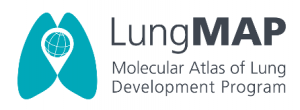 A unique project aimed at helping researchers, academics, and healthcare providers improve their understanding and knowledge of respiratory health recently received $20 million in funding from the National Institutes of Health. This 5-year initiative will attempt to comprehensively “map out” the human lung from birth throughout childhood, and was launched by a group of investigators from the University of Rochester Medical Center, in cooperation with several other institutions.
A unique project aimed at helping researchers, academics, and healthcare providers improve their understanding and knowledge of respiratory health recently received $20 million in funding from the National Institutes of Health. This 5-year initiative will attempt to comprehensively “map out” the human lung from birth throughout childhood, and was launched by a group of investigators from the University of Rochester Medical Center, in cooperation with several other institutions.
$6.1 million of the $20 million NIH grant is being awarded to the group at URMC, who first developed the Human Lung Molecular Atlas Program, or LungMAP. Once completed, this groundbreaking approach to understanding pediatric pulmonary anatomy and physiology can assist physicians and allied health professionals in identifying patients at risk for respiratory health issues. An example of the LungMAP’s application is in the case of premature newborns, who are known to be predisposed to developing chronic obstructive pulmonary diseases (COPDs) later on in life.
[adrotate group=”3″]
 “But we don’t always know which ones, or how severe their complications will be,” said Gloria Pryhuber, M.D., lead researcher, professor of Pediatrics and Environmental Medicine. “So that’s what this is really all about — we need to know more about how the lung is formed and heals normally, in order to encourage pre-term infants to develop more normally, and to help adult lungs to heal from diseases like pneumonia and emphysema.”
“But we don’t always know which ones, or how severe their complications will be,” said Gloria Pryhuber, M.D., lead researcher, professor of Pediatrics and Environmental Medicine. “So that’s what this is really all about — we need to know more about how the lung is formed and heals normally, in order to encourage pre-term infants to develop more normally, and to help adult lungs to heal from diseases like pneumonia and emphysema.”
The project will soon require the team at URMC to obtain samples of lung tissue via a cross-state organ donor network. The next phase will employ computerized tomography (CT) scanning to study the tissue samples before being able to create a 3D model of the lungs. This will eventually lead to the reconstruction of even more detail, on a cellular and even genetic level, and incorporate simulations of immune system function.
The LungMAP will also be accessible online for the convenience of doctors and other researchers across the globe. Dr. Pryhuber believes this will largely benefit management of respiratory ailments before they are diagnosed, and serve as a highly comprehensive foundation for future research and development initiatives, not only in the field of pulmonology, but in other pressing health concerns with known lung affectations.

